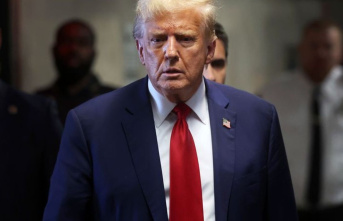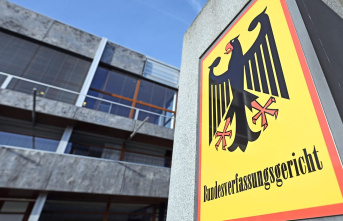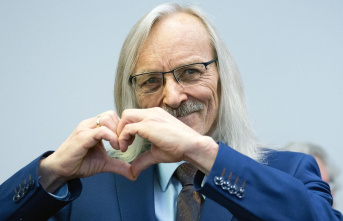The collective bargaining for the public service of federal and local authorities have failed - now it is the turn of independent arbitrators. According to Verdi, as of this Sunday there is a peace obligation for the time of the arbitration.
Until then, at best, smaller regional warning strikes are planned. It is now eagerly awaited whether the arbitrators can solve the heated wage dispute - or whether the arbitration fails and new strikes are imminent in a few weeks.
After a tough struggle over three days, Verdi and the civil servants' association dbb declared the negotiations in Potsdam on Thursday night to have failed. Federal Minister of the Interior Nancy Faeser then announced for the employers: "We will now convene the arbitration."
Arbitration follows a set procedure with deadlines. An arbitration commission has until mid-April to submit a settlement proposal for the income of the 2.5 million federal and local employees. The chairmen of the arbitration commission are the former Prime Minister of Saxony Georg Milbradt for the employers and the former Bremen State Councilor Hans-Henning Lühr for the trade unions, with Lühr having the deciding vote.
Disappointment at Faeser and Welge
In three rounds of negotiations starting in January, trade unions and employers had not been able to reach a sufficient level of rapprochement. Werneke said: "In the end we had to realize that the differences could not be bridged." The head of the civil servants' association dbb, Ulrich Silberbach, alluded to the high rates of inflation and high energy prices in Germany. It was the order of the employees to the unions "that they not only receive inflation compensation, but a real wage increase". The trade union bodies voted unanimously for failure, explained Werneke and Silberbach.
Minister Faeser and the chief negotiator for the municipalities, Gelsenkirchen's mayor Karin Welge (both SPD), were disappointed. "I very much regret that the unions have now broken off negotiations," said Faeser. "We would have wished for something else, and I think that especially in these times of crisis it would have been good to stay at the negotiating table." Employers approached the unions "to the limit of being responsible for public budgets".
Welge said: "The bridge that we have built is not one that one could not have walked on. In this respect, the disappointment is written all over our faces." According to Faeser, employers offered 8 percent more income and a minimum amount of 300 euros - plus a tax-free one-off payment of 3,000 euros with a payment of 1,750 euros in May.
Verdi and dbb had demanded 10.5 percent more income, but at least 500 euros more per month. The minimum amount, which would primarily benefit those on lower incomes, was central to her. In February, the employers had only offered 5 percent more wages and one-off payments of 1,500 and then another 1,000 euros - but no minimum amount. The at least 300 euros more offered would have made up to 15 percent more in lower income groups, according to employer circles.
What's next?
How things will continue after the arbitration is open. According to a list by the unions available to the German Press Agency, the negotiations between the collective bargaining parties must be resumed by April 18 at the latest. The collective bargaining dispute can then be finally resolved - but regular strikes can also follow. There were already strikes in the public sector in the early 1990s after failed arbitration.
Verdi had proven to be able to mobilize in the past few weeks - and partially paralyzed public transport, daycare centers, clinics and many other areas. "By the end of last week we had half a million participants," said Werneke. That shows the support with which Verdi was on the road. "And this support is unbroken," said Werneke. In the past three months, the union recorded over 70,000 entries.
Members of a number of professions are affected by the collective bargaining in the public sector - including educators, bus drivers, employees of pools, firefighters, nurses, administrative employees, geriatric nurses, sewage treatment plant employees, foresters and doctors. It is about the income of more than 2.4 million employees of the municipal employers and 134,000 of the federal government. According to the will of the trade unions, the result should be transferred to the civil servants.











